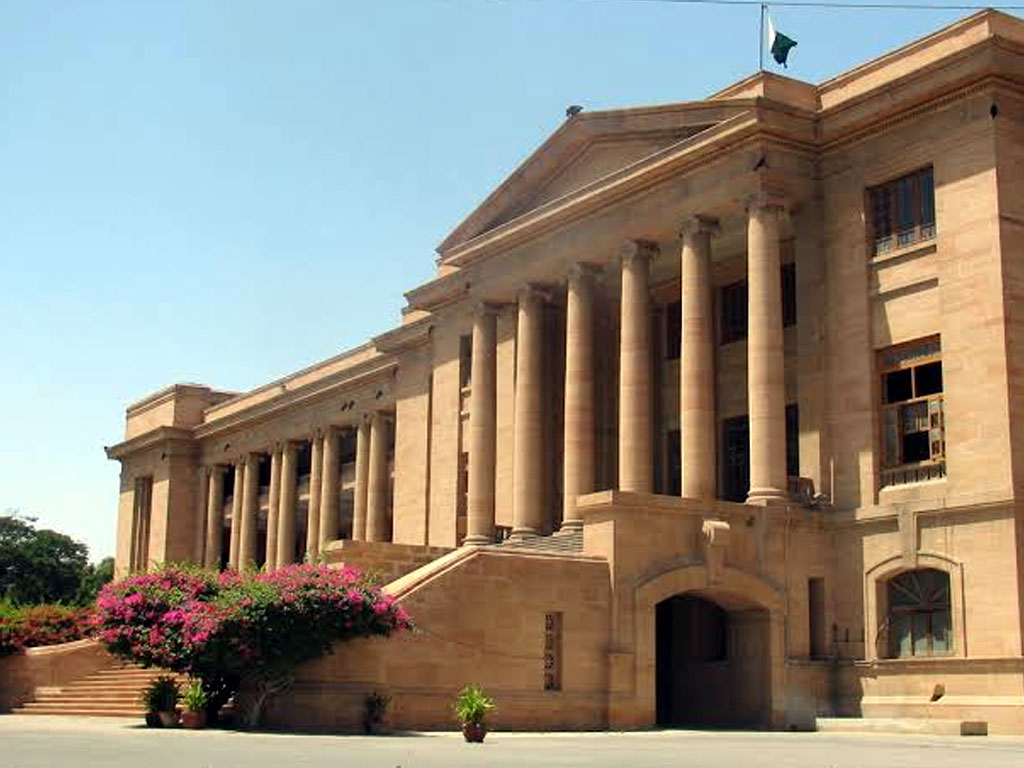Congregational prayer to give rise to virus spread, observes SHC

The Sindh High Court (SHC) has ruled that under the present circumstances, congregational prayer especially Friday prayer, will give rise to spread of the coronavirus potentially constituting a grave threat to public health and welfare.
The Sindh government in the wake of the spread of the coronavirus ordered lockdown in the province on March 26, 2020, and on April 02, 2020, whereby the restriction earlier imposed on public gatherings had been extended to places of religious worship, to the effect that only three to five designated persons such as the imam, muezzin and the mosque caretaker might form part of the congregation, whereas the members of the general public were left at liberty to offer their prayers at their respective homes.
The court said the order dated April 02, 2020 by the Sindh government reflected that the measures thereby imposed had been put in place after obtaining guidance from religious scholars across all major sects, and copies of the numerous fatwas issued by prominent ulema endorsing the action had been placed on record.
A division bench comprising Justice Ali Mazhar and Justice Yousuf Ali Sayeed on April 8, 2020 after hearing the arguments on the petition of Arshad Riaz Mughal Advocate, had reserved the judgment.
The judgment authored by Justice Yousuf Ali said; "Under [the] present circumstances, the gathering of a congregation would itself give rise to a hub for the spread of contagion potentially constituting a grave threat to public health and welfare."
The judgment noted that the argument with reference to Article 31 of the Constitution, sets out a directive principle of policy rather than a fundamental right, which is well settled in Supreme Court judgments in the case of Miss Benazir Bhutto v. Federation of Pakistan and another PLD 1988 SC 416, as well as the judgment of the Shariat Appellate Bench in Government of Punjab through Chief Secretary v, Dr Zahoor Ahmed Azhar PLD 2019 SC 32, while such principles are to be regarded as fundamental to the governance of the State, they are not enforceable by any Court.
The SHC said the jurisdiction to test the vires of an enactment or order/rule having the force of law purely on the basis of Islamic injunctions vests exclusively with the Federal Shariat Court, "it is unnecessary for us to undertake further scrutiny on that note or digress as to the scholarly interpretations of the divine word at this juncture."
The order dated April 02, 2020 does not serve to curtail the right to worship per se, but merely to congregate, and that too, in view of the exigencies of the prevailing pandemic.
The step taken by the Sindh government to curtail the size of religious congregations at mosques is evidently not a standalone measure targeted at such places of worship in isolation, but is part of a more comprehensive set of measures designed to curtail social interaction as a whole, and the resultant spread of disease across the board.
The protocols that have generally been put in place appear to have been designed with due thought as to the outcome sought to be achieved, for a reason that is apparently itself in the public interest under the prevailing circumstances, and a breach thereof at any particular level would inevitably serve to undermine the efficacy of the overall scheme, increase the risk that infection would spread, and endanger human life.
"Indeed, ensuring proper distancing at mosques would be next to impossible and would even otherwise negate the very purpose of a congregation," the judgment said.
It noted that limiting participation on the basis of advanced age, as suggested, would itself be discriminatory and also expose the very persons who were among those most at risk of succumbing to the disease.
Ergo, the lifting of such a restriction, even to the limited extent sought, cannot be countenanced and this court would be remiss in its constitutional duty, if a writ were to be issued to that effect under the given circumstances.
The judgment said that the decision to curtail the size of the congregation in exercise of powers under Sindh Epidemic Diseases Act, 2014 is only an interim measure that has been put in place after obtaining guidance from religious scholars, as per the fatwas available on record.
Arshad Riaz Mughal had filed a petition under Article 199 that the provincial government be ordered to open he mosques to the extent of Friday prayers.
In support of his arguments the petitioner cited verses from the holy Quran and various published works of several well-recognised religious scholars, including the Tafseer Abbasi, Tafseer Ibn-eKaseer, Tafseer Usmani, Kashful Majoob, Sahih al-Bukhari, Sahih Muslim and the sermons of Hazrat Imam Jafar Sadiq to emphasise the importance in Islam of congregational prayer, especially the Friday prayer.
The additional advocate general (AAG), on behalf of the Sindh government, raised an objection to the maintainability of the petition on the ground that under Article 203-D of the Constitution the examination of a law or policy on the touchstone of Islamic injunctions, as enunciated in the holy Quran and Sunnah, lies solely within the domain of the Federal Shariat Court, and the jurisdiction of a high court in such a matter was barred by virtue of Article 203-G.
He had told the court that the mosques had not in fact been closed, and it was merely the size of the congregation, which had been limited as a necessary and temporary measure based on the emergent circumstances stemming from the COVID-19 outbreak.
He submitted that the steps taken under the 2014 Act as part of the overall lockdown were subject to review on a periodic basis, and would be revised based on a reassessment of the circumstances.





















Comments
Comments are closed.